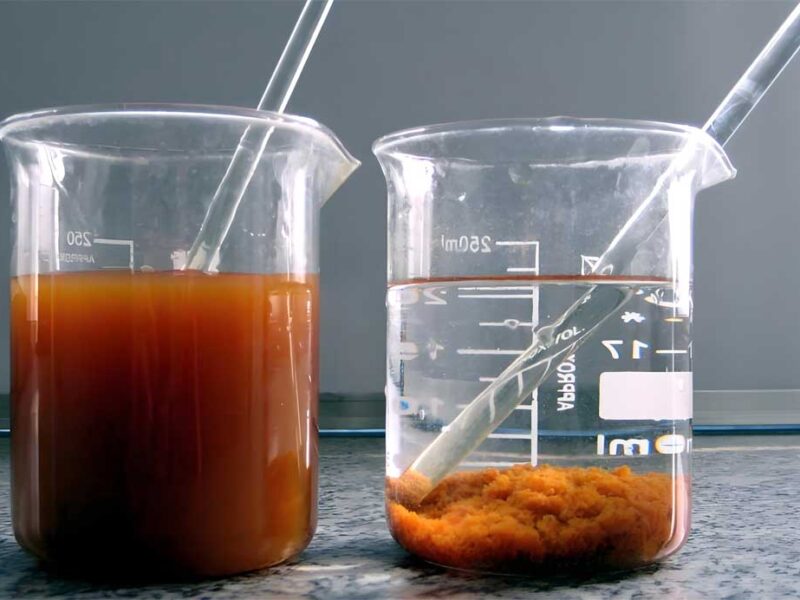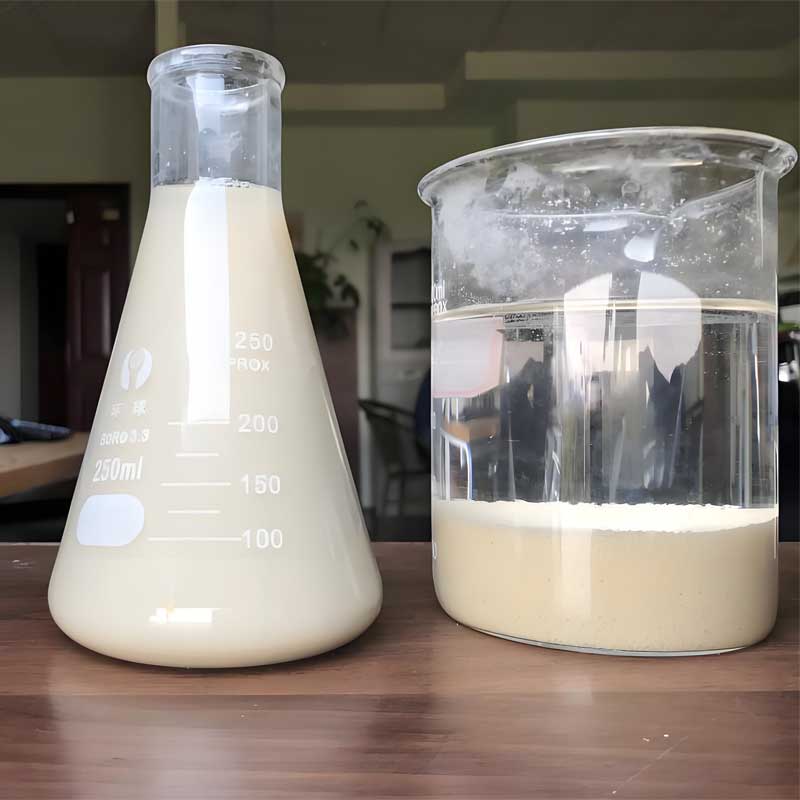
Contents
- 1 Introduction:
- 2 Understanding Flocculants:
- 3 Classification of Flocculants:
- 4 Inorganic Flocculants:
- 5 Organic Flocculants:
- 6 Synthetic Flocculants:
- 7 Natural Flocculants:
- 8 The Versatility of Flocculants: Applications in Various Industries
- 9 Mining Industry:
- 10 Oil and Gas Industry:
- 11 Pulp and Paper Industry:
- 12 Food and Beverage Industry:
- 13 Municipal Water Treatment:
- 14 Applications of Flocculants in Water Treatment:
- 15 Choosing the Right Flocculant:
- 16 Conclusion:
- 17 FAQs:
- 18 How WaterCareChem Can Help You With Your Water Treatment Chemical Needs?
- 19 Water Treatment Simplified: How WaterCareChem Can Be Your One-Stop Shop
Introduction:
Water treatment is a vital process to ensure the provision of clean and safe water for various applications. One key component in water treatment is the use of flocculants, which play a crucial role in improving the efficiency of the treatment process. In this article, we will explore the importance of flocculants, their classification, and their applications in enhancing water treatment efficiency.
Understanding Flocculants:

Flocculants are chemical substances that facilitate the aggregation of small particles and impurities in water into larger, settleable masses called flocs. These flocs can be easily removed from the water, resulting in improved water clarity and quality. Flocculants work by neutralizing charges on the particles, allowing them to come together and form flocs.
Classification of Flocculants:
Flocculants can be classified into two main categories based on their origin:
-
Inorganic Flocculants:
Aluminum-based Flocculants: These include aluminum sulfate (alum) and polyaluminum chloride (PAC). They are commonly used in water treatment processes due to their excellent ability to remove suspended particles, turbidity, and organic matter.
Iron-based Flocculants: Ferric chloride and ferrous sulfate are examples of iron-based flocculants. They are effective in removing phosphates and heavy metals from water sources.
-
Organic Flocculants:
Polyacrylamides (PAM): These synthetic flocculants are widely used due to their high efficiency in flocculation. They are effective in treating various types of water, including industrial wastewater and municipal water.
-
Synthetic Flocculants:
Polyethyleneoxide (PEO): Polyethyleneoxide is a synthetic flocculant that is frequently used in municipal wastewater treatment and industrial processes. It is effective in flocculating suspended solids and improving the settling characteristics of sludge.
PolyDADMAC: PolyDADMAC (PolyDiallyldimethylammonium chloride) is a cationic synthetic flocculant commonly used in the papermaking industry to improve the retention and drainage of fibers during the paper production process.
-
Natural Flocculants:
Chitosan: Chitosan is a natural flocculant derived from chitin, a substance found in the shells of crustaceans. It is biodegradable and non-toxic, making it suitable for environmentally friendly applications. Chitosan is often used in water and wastewater treatment, as well as in the food and beverage industry.
Starch: Starch, derived from corn, potatoes, or tapioca, is a natural flocculant used in various industries. It is often employed in wastewater treatment and as a coagulant aid in water clarification processes.
Guar Gum: Guar gum is a natural polysaccharide extracted from the seeds of the guar plant. It is used as a flocculant in industries such as mining and food processing. Guar gum aids in the separation of solids from liquids and improves the efficiency of dewatering processes.
The Versatility of Flocculants: Applications in Various Industries
Mining Industry:
- Tailings Management: Flocculants are widely used in the mining industry to separate solid particles from slurry during the tailings management process. By promoting the formation of larger flocs, flocculants aid in the efficient settling and dewatering of the tailings, allowing for easier handling and reducing the environmental impact.
- Ore Processing: In ore processing, flocculants are employed to facilitate the separation of valuable minerals from the ore. By promoting the aggregation of fine particles, flocculants enhance the settling and filtration processes, improving the recovery rate of precious metals.
Oil and Gas Industry:
- Produced Water Treatment: Flocculants play a crucial role in the treatment of produced water, which is a byproduct of oil and gas extraction. They aid in the removal of oil, suspended solids, and other contaminants from the water, ensuring compliance with environmental regulations and facilitating its safe disposal or reuse.
- Drilling Mud Treatment: Flocculants are utilized in the treatment of drilling mud to separate solids from the fluid. By forming larger flocs, they enhance the efficiency of solid-liquid separation processes, allowing for the reuse of drilling mud and reducing waste generation.
Pulp and Paper Industry:
- Papermaking Process: Flocculants are essential in the papermaking industry to improve the efficiency of the pulp clarification and dewatering processes. They aid in the removal of fine particles, fibers, and impurities, resulting in higher quality paper, reduced water consumption, and improved operational efficiency.
- Effluent Treatment: Flocculants are employed in the treatment of wastewater generated during the papermaking process. They assist in the removal of suspended solids, organic matter, and dyes, ensuring compliance with environmental regulations and minimizing the environmental impact of effluent discharge.
Food and Beverage Industry:
- Wastewater Treatment: Flocculants play a significant role in the treatment of wastewater generated in the food and beverage industry. They aid in the removal of organic compounds, suspended solids, and nutrients, ensuring the compliance of effluent discharge with regulatory standards and minimizing environmental pollution.
- Clarification of Beverages: Flocculants are used in the clarification process of beverages such as wine, beer, and fruit juices. They aid in the removal of suspended particles, proteins, and haze-causing substances, resulting in improved clarity and stability of the final product.
Municipal Water Treatment:
- Drinking Water Treatment: Flocculants are essential in municipal water treatment plants to enhance the removal of suspended particles, turbidity, and organic matter. By facilitating the formation of flocs, they improve the efficiency of coagulation, sedimentation, and filtration processes, ensuring the provision of clean and safe drinking water.
- Wastewater Treatment: Flocculants are widely used in municipal wastewater treatment to aid in the removal of organic compounds, suspended solids, and nutrients. By promoting the settling and dewatering of sludge, they facilitate the effective treatment and disposal of wastewater.
Applications of Flocculants in Water Treatment:
Flocculants find extensive applications in water treatment processes to improve the efficiency and effectiveness of treatment. Here are some key applications:
- Coagulation and Sedimentation: Flocculants are utilized as coagulants to promote the aggregation of suspended particles and impurities in water. This process aids in the easy removal of these contaminants through sedimentation or filtration.
- Clarification and Filtration: Flocculants enhance the removal of fine particles and impurities during the clarification and filtration stages of water treatment. By forming larger flocs, the flocculants improve the performance of filters and increase the clarity of the treated water.
- Sludge Dewatering: In wastewater treatment, flocculants assist in the dewatering process by promoting the separation of water from sludge. This results in reduced volume and improved handling of the sludge for disposal.
- Enhanced Settling: Flocculants can enhance the settling of suspended solids in sedimentation tanks, allowing for faster and more efficient removal of impurities.

Choosing the Right Flocculant:
Selecting the appropriate flocculant for a specific water treatment application is crucial. Factors to consider include:
- Water Quality: Analyzing the water source and identifying the specific contaminants present helps determine the optimal flocculant for effective treatment.
- Treatment Objectives: Different flocculants have varying efficiencies in removing specific contaminants. Understanding the treatment goals, such as turbidity reduction or heavy metal removal, aids in selecting the right flocculant.
- Cost-effectiveness: Assessing the cost implications of using different flocculants is essential. Factors such as dosage requirements, availability, and long-term operational costs should be considered.
- Compatibility: Flocculants should be compatible with the treatment process, equipment, and chemicals used in water treatment to ensure optimal performance.
Conclusion:
Flocculants play a critical role in enhancing water treatment efficiency by promoting the aggregation and removal of suspended particles and impurities. Understanding the classification of flocculants, their applications, and the factors to consider when choosing the right flocculant is essential for effective water treatment processes. By harnessing the power of flocculants, we can ensure the provision of clean and safe water for various purposes.
FAQs:
- Are flocculants safe for drinking water treatment?
Yes, when used in appropriate dosages, flocculants are safe for drinking water treatment. They facilitate the removal of impurities and improve water quality.
- Can flocculants be used in industrial wastewater treatment?
Absolutely! Flocculants are commonly used in industrial wastewater treatment to remove suspended solids, oils, and other contaminants.
- How do flocculants improve filtration performance?
Flocculants aid in the formation of larger flocs, increasing the efficiency of filtration systems by capturing and removing finer particles.
- Are there any environmental considerations when using flocculants?
It is important to use flocculants responsibly and follow proper disposal protocols to minimize any potential environmental impacts.
- Where can I find reliable flocculant suppliers for water treatment?
It is recommended to consultwith local water treatment experts or conduct online research to find reputable flocculant suppliers in your area.
How WaterCareChem Can Help You With Your Water Treatment Chemical Needs?
Water Treatment Simplified: How WaterCareChem Can Be Your One-Stop Shop
Water treatment shouldn’t be a headache. At WaterCareChem, we’re your trusted partner for all your water treatment chemical needs. We offer a comprehensive range of high-quality chemicals, from essential products to advanced solutions for specific applications.
Our team of water treatment specialists has the knowledge and experience to help you choose the right chemicals for your unique needs. We can answer your questions, provide technical support, and ensure you get the best possible results.
Don’t just settle for any water treatment chemical supplier. WaterCareChem is committed to providing exceptional customer service, competitive pricing, and reliable delivery so you can focus on what matters most – achieving optimal water quality.
- Extensive product range: Cater to a wide range of water treatment needs.
- Expert knowledge: Provide technical support and guidance.
- High-quality products: Ensure optimal water treatment results.
- Competitive pricing: Offer cost-effective solutions.
- Reliable delivery: Guarantee timely arrival of chemicals.
- Exceptional customer service: Prioritize customer satisfaction.
Contact WaterCareChem today to Request a Quote, and see how we can be a valuable partner for your water treatment chemical 需要。
Last Updated on 2024-07-05 by system
